Kia Ceed vs Dacia Bigster – Differences & prices compared
Costs and Efficiency:
Price and efficiency are key factors when choosing a car – and this is often where the real differences emerge.
Dacia Bigster has a to a small extent advantage in terms of price – it starts at 20600 £, while the Kia Ceed costs 23500 £. That’s a price difference of around 2915 £.
Fuel consumption also shows a difference: Dacia Bigster manages with 4.70 L and is therefore evident more efficient than the Kia Ceed with 6 L. The difference is about 1.30 L per 100 km.
Engine and Performance:
Power, torque and acceleration are the classic benchmarks for car enthusiasts – and here, some clear differences start to show.
When it comes to engine power, the Dacia Bigster has a hardly perceptible edge – offering 155 HP compared to 140 HP. That’s roughly 15 HP more horsepower.
In acceleration from 0 to 100 km/h, the Kia Ceed is minimal quicker – completing the sprint in 9.50 s, while the Dacia Bigster takes 9.70 s. That’s about 0.20 s faster.
In terms of top speed, the Kia Ceed performs minimal better – reaching 197 km/h, while the Dacia Bigster tops out at 180 km/h. The difference is around 17 km/h.
There’s also a difference in torque: Kia Ceed pulls hardly perceptible stronger with 253 Nm compared to 230 Nm. That’s about 23 Nm difference.
Space and Everyday Use:
Whether family car or daily driver – which one offers more room, flexibility and comfort?
Both vehicles offer seating for 5 people.
In curb weight, Kia Ceed is hardly perceptible lighter – 1298 kg compared to 1425 kg. The difference is around 127 kg.
In terms of boot space, the Dacia Bigster offers decisively more room – 667 L compared to 395 L. That’s a difference of about 272 L.
In maximum load capacity, the Dacia Bigster performs distinct better – up to 1937 L, which is about 646 L more than the Kia Ceed.
When it comes to payload, Kia Ceed hardly perceptible takes the win – 490 kg compared to 467 kg. That’s a difference of about 23 kg.
Who comes out on top?
Overall, the Dacia Bigster shows itself to be is largely superior and secures the title of DriveDuel Champion.
It convinces with the more balanced overall package and proves to be the more versatile choice for everyday use.
Costs and Consumption
View detailed analysis
Engine and Performance
View detailed analysis
Dimensions and Body
View detailed analysis
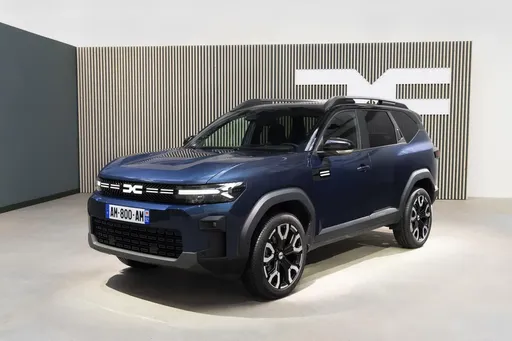 @ Dacia / Renault Group Media
@ Dacia / Renault Group Media
Dacia Bigster
Kia Ceed
The Kia Ceed is a sensible, stylish hatchback that gives buyers more than they'd expect for the money, blending practical space with crisp, modern looks. It drives with measured confidence and comes loaded with user-friendly kit, so you can enjoy daily life behind the wheel without breaking into a sweat.
details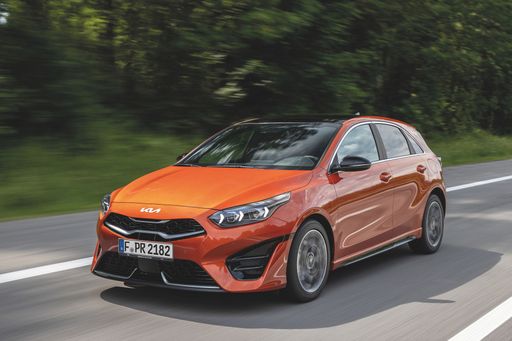 @ Kia Corporation
@ Kia Corporation
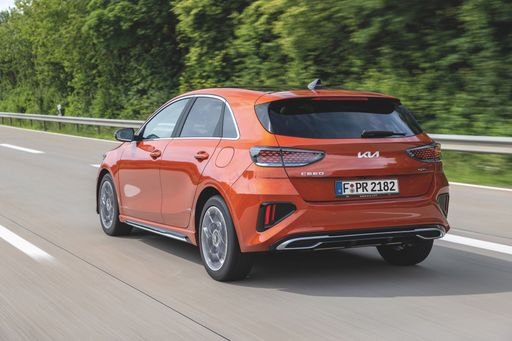 @ Kia Corporation
@ Kia Corporation
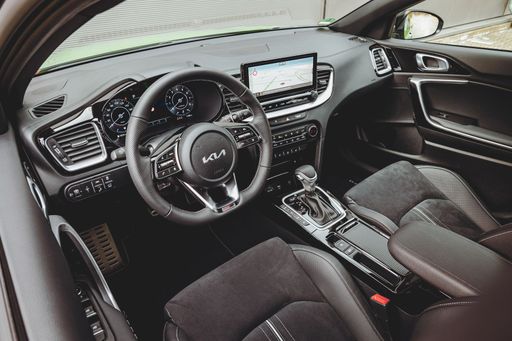 @ Kia Corporation
@ Kia Corporation
Dacia Bigster
The Bigster is poised to redefine the SUV segment with its bold design and spacious interior, catering to the needs of both families and adventure seekers alike. Emphasizing sustainability and practicality, this model reflects a modern approach to automotive engineering, making it a compelling choice for environmentally conscious drivers. With its striking presence on the road, the Bigster not only captures attention but also embodies a new era of versatile mobility.
details @ Dacia / Renault Group Media
@ Dacia / Renault Group Media
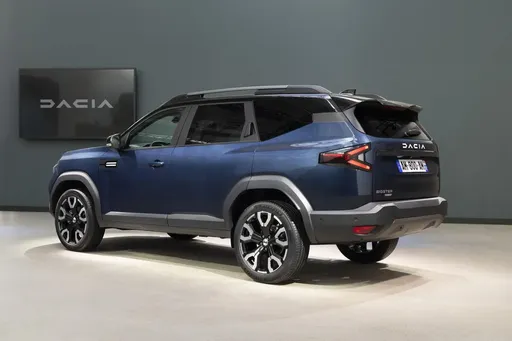 @ Dacia / Renault Group Media
@ Dacia / Renault Group Media
 @ Dacia / Renault Group Media
@ Dacia / Renault Group Media
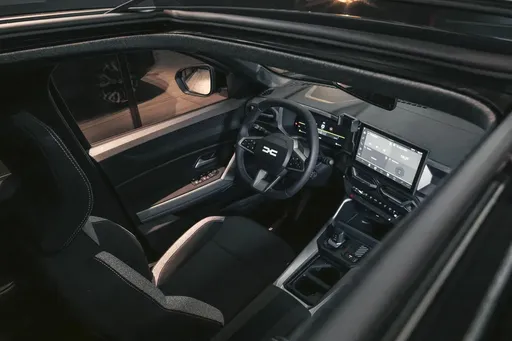 @ Dacia / Renault Group Media
@ Dacia / Renault Group Media
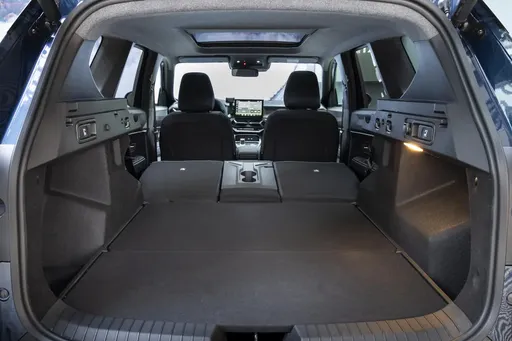 @ Dacia / Renault Group Media
@ Dacia / Renault Group Media
 @ Kia Corporation
@ Kia Corporation
|
 @ Dacia / Renault Group Media
@ Dacia / Renault Group Media
|
|
|
|
Costs and Consumption |
|
|---|---|
|
Price
23500 - 26300 £
|
Price
20600 - 26600 £
|
|
Consumption L/100km
6 - 6.4 L
|
Consumption L/100km
4.7 - 7.1 L
|
|
Consumption kWh/100km
-
|
Consumption kWh/100km
-
|
|
Electric Range
-
|
Electric Range
-
|
|
Battery Capacity
-
|
Battery Capacity
-
|
|
co2
137 - 146 g/km
|
co2
106 - 137 g/km
|
|
Fuel tank capacity
50 L
|
Fuel tank capacity
50 - 55 L
|
Dimensions and Body |
|
|---|---|
|
Body Type
Hatchback
|
Body Type
SUV
|
|
Seats
5
|
Seats
5
|
|
Doors
5
|
Doors
5
|
|
Curb weight
1298 - 1372 kg
|
Curb weight
1425 - 1547 kg
|
|
Trunk capacity
357 - 395 L
|
Trunk capacity
510 - 667 L
|
|
Length
4315 mm
|
Length
4570 mm
|
|
Width
1800 mm
|
Width
1813 mm
|
|
Height
1447 mm
|
Height
1705 mm
|
|
Max trunk capacity
1253 - 1291 L
|
Max trunk capacity
1813 - 1937 L
|
|
Payload
478 - 490 kg
|
Payload
383 - 467 kg
|
Engine and Performance |
|
|---|---|
|
Engine Type
Petrol, Petrol MHEV
|
Engine Type
Petrol MHEV, Full Hybrid, LPG
|
|
Transmission
Manuel, Automatic
|
Transmission
Manuel, Automatic
|
|
Transmission Detail
Manual Gearbox, Dual-Clutch Automatic
|
Transmission Detail
Manual Gearbox, Automated Manual
|
|
Drive Type
Front-Wheel Drive
|
Drive Type
All-Wheel Drive, Front-Wheel Drive
|
|
Power HP
100 - 140 HP
|
Power HP
130 - 155 HP
|
|
Acceleration 0-100km/h
9.5 - 13.2 s
|
Acceleration 0-100km/h
9.7 - 11.2 s
|
|
Max Speed
178 - 197 km/h
|
Max Speed
180 km/h
|
|
Torque
172 - 253 Nm
|
Torque
230 Nm
|
|
Number of Cylinders
3 - 4
|
Number of Cylinders
3 - 4
|
|
Power kW
74 - 103 kW
|
Power kW
96 - 115 kW
|
|
Engine capacity
998 - 1482 cm3
|
Engine capacity
1199 - 1799 cm3
|
General |
|
|---|---|
|
Model Year
2024
|
Model Year
2025
|
|
CO2 Efficiency Class
E
|
CO2 Efficiency Class
E, D, C
|
|
Brand
Kia
|
Brand
Dacia
|
What drivetrain options does the Kia Ceed have?
The Kia Ceed is available as Front-Wheel Drive.
The prices and data displayed are estimates based on German list prices and may vary by country. This information is not legally binding.
